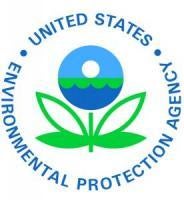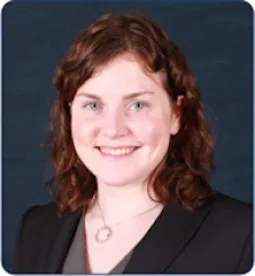Coordinated multi-agency effort results in seizure of thousands of packages of illegal pesticides from dozens of locations
WASHINGTON – The U.S. Environmental Protection Agency (EPA), the United States Attorney for the Southern District of New York, the District Attorney for New York County, the New York State Department of Environmental Conservation (DEC), the New York Office of U.S. Immigrations and Customs Enforcement's (ICE) Homeland Security Investigations (HIS), and the New York Office of the United States Postal Inspection Service (USPIS), today announced federal criminal charges against two defendants, Chen Yan Huang and Jai Ping Chen, and state criminal charges against 10 defendants, for their respective roles in the illegal distribution and sale of unregistered and misbranded pesticides that were sold out of multiple locations in Manhattan.
The pesticides were particularly dangerous because their packaging and appearance could lead them to be mistaken for cookies or cough medicine. The pesticides were not registered by EPA and were missing required label warnings, so consumers had no way of knowing how dangerous the products were or how best to protect themselves from harmful exposure. In fact, one woman accidentally ingested one of the pesticides, believing it to be medicine, and was hospitalized as a result.
"The sale of unregistered chemical products is illegal and puts people's health, particularly young children, at risk,” said Cynthia Giles, assistant administrator for EPA’s Office of Enforcement and Compliance Assurance. “Last week's 12 arrests, inspections, and outreach to the local community about the dangers of unregistered pest control chemicals, will help keep our neighborhoods safe and illegal products off the streets."
"As alleged, these defendants were literally peddling poison to an unwitting public, putting the health and safety of their customers and their families in jeopardy,” said U.S. Attorney Preet Bharara. “As a result of this unprecedented collaborative law enforcement effort, tremendous quantities of these highly toxic and potentially lethal chemicals have been confiscated, and the people allegedly responsible for creating this public health risk will be punished."
"The sale of illegal pesticides poses a direct threat to the health and safety of our community,” said New York District Attorney Cyrus Vance. “In the cases charged by our office, that threat was particularly imminent in the Chinatown neighborhood.”
"State pesticide regulations are in place to ensure pesticides are used only when necessary and in the smallest concentrations possible to protect both the people using the products and the environment,” said DEC Commissioner Joe Martens. “The high concentration of illegal pesticides found in this case poses a significant health threat to the individuals using these products and any unsuspecting person who might come into contact with them. The collaborative efforts of DEC Environmental Conservation Officers, DEC pesticides staff, EPA agents and the Manhattan District Attorney's Office made removing this threat to the community possible."
"The smuggling of toxic, tainted and hazardous products threatens the health and safety of consumers who unwittingly purchase and use them,” said ICE HSI Special Agent-in-Charge James T. Hayes, Jr. “The manufacture, illegal importation, marketing, distribution and sale of these products amount to theft and threatens the economic security of the United States. HSI maintains a zero-tolerance policy when it comes to the illegal importation of smuggled goods."
"Postal Inspectors are committed to protecting the U.S. Mails and the public from dangerous and harmful items placed in the mailstream, whether in the US or abroad,” said USPIS Inspector-in-Charge Ronald J. Verrochio. “The defendants knowingly distributed illegal pesticides to consumers, placing their lives at risk. Along with our Federal counterparts, Postal Inspectors will always pursue individuals who use the mails to conduct illegal activities, placing our employees and customers in harm's way."
In addition to the 12 arrests, pursuant to court-ordered search warrants, federal and state law enforcement agents searched 14 locations and seized more than 6,000 packages of pesticides containing high levels of toxic chemicals that were not approved for commercial sale in the United States. Also, as part of a coordinated citywide inspection of 47 businesses in various neighborhoods in Manhattan, Brooklyn, and Queens, EPA and DEC civil inspectors seized 350 additional unregistered pesticide products, of 16 different varieties, many with high levels of toxicity.
According to the complaints unsealed Wednesday in Manhattan federal court, in December 2010, an individual became gravely ill after ingesting a pesticide she mistook for medicine. Later investigation revealed that the pesticide, a small vial of blue-green liquid labeled primarily in Chinese with the words "The Cat Be Unemployed," was being sold illegally in the Chinatown section of Manhattan. The pesticide was not registered by the EPA nor was it properly labeled, as required by both state and federal law. The investigation further revealed that the product contained almost 61 times the amount of brodifacoum -- a rodenticide -– than is allowed by the EPA.
Additionally, brodifacoum is not approved for direct consumer use; it may only be used by licensed professionals. In response to the poisoning, various law enforcement agencies began a joint undercover investigation of the illegal sale of toxic pesticides in and around New York City. The multi-agency criminal investigation revealed at least a dozen unregistered and misbranded pesticide products, some with extremely high levels of toxicity, being sold by more than a dozen vendors in and around Manhattan's Chinatown.
In the two federal complaints unsealed last week, Chen Yan Huang and Jai Ping Chen are alleged to have distributed and sold more than 4,600 individual packages of unregistered and misbranded pesticide products to undercover agents on multiple occasions between May and August 2011. Many of the pesticide packages they sold misrepresented the amount of the chemical the pesticide contained, none contained the required ingredient statement, and none had been approved by the EPA for commercial sale. Huang owns a store in the Chinatown area of Manhattan that illegally sold the pesticides, some of which were kept concealed from public view, others of which were displayed on the counter.
During one meeting, Huang told undercover agents he could provide as many packages of pesticides as they wanted. During a search of Huang's store on September 14, 2011, agents found more than 800 packages of unregistered pesticides. Chen, a delivery driver, made multiple deliveries of pesticides to at least two locations in Manhattan, including Huang's store. Agents also found thousands of packages of pesticides in Chen's home on September 14, 2011.
The operation involved purchases of the following dangerous chemicals: (1) Bromadiolone and Brofidacoum, both "restricted use" chemicals, which are active ingredients in rodenticides, or pesticides used to kill rodents. They are both highly toxic and are therefore not approved for use by the general public, nor may either be in products intended for consumer or urban use; (2) Sodium Fluoroacetate, also highly toxic, is a "restricted use" chemical, that is only approved for use to protect livestock from coyotes and can only be used by a licensed professional; and (3) Fipronil is an active ingredient in insecticides. The products sold to undercover agents had significantly higher levels of Fipronil than allowed by EPA.
The products provided to undercover agents by Huang and Chen contained high levels of Brofidacoum and Fipronil, and were sold under various names, including "Fuzhou Control Termite Company -- Cockroachkiller Bait" and "Mie Zhang Qing." Attached to the federal complaint are photographs of the pesticide products purchased at Huang's store, as well a chart summarizing the results of scientific analysis of the products.
Chen, 43, of Flushing, New York, is charged with two counts of distributing unregistered pesticides, two counts of distributing misbranded pesticides, and one count of conspiracy to violate the federal laws regulating the distribution and sale of pesticides. Each count carries a maximum sentence of one year and a maximum fine of $25,000.
Huang, 56, of New York, New York, is charged with four counts of distributing unregistered pesticides, four counts of distributing misbranded pesticides, and one count of conspiracy to violate the federal laws regulating the distribution and sale of pesticides. Each count carries a maximum sentence of one year and a maximum fine of $25,000.
The charges contained in the various charging instruments discussed above are merely accusations, and the defendants are presumed innocent unless and until proven guilty.
More information about the civil inspections: http://www.epa.gov/region2/pesticides
More information on pesticide regulation and enforcement: http://www.epa.gov/compliance/civil/fifra/index.html
More information on the state charges: http://manhattanda.org/
More information on EPA’s criminal program: http://www.epa.gov/compliance/criminal/index.html




 />i
/>i
